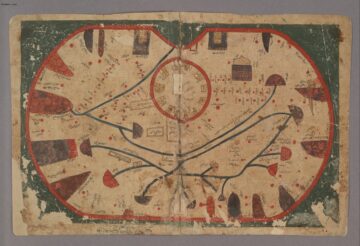The IIS is pleased to announce the publication of A Code of Conduct: A Treatise on the Etiquette of the Fatimid Ismaili Mission. Fifteenth in the Institute’s Ismaili Texts and Translations Series, it is a critical edition and translation of the Fatimid author Ahmad b. Ibrahim al-Naysaburi’s Risala al-mujaza al-kafiya fi adab al-duʿat (A Brief and Concise Treatise on the Code of Conduct for the Daʿis).
A complex and crucial aspect of Ismaili studies, the daʿwaLit. ‘summons’, ‘mission’ or invitation to Islam. Amongst Shi’i Muslims, it was the invitation to adopt the cause of the Imamat. It also refers more specifically to the hierarchy of… historically constitutes the calling and religious instruction that accompanied the Ismaili mission. Comprising numerous sub-groups that developed out of the Shiʿi milieu in 8th-century Iraq, the daʿwa was the central vehicle for Ismaili expansion and success. The strategy of the daʿwa proved to be effective and led ultimately to the apogee of Ismaili political power: the Fatimid state, which was established as a caliphate in the year 909 CE. For three centuries, this unprecedented triumph over the Abbasid caliphateThe Muslim political institution or state centred around the caliph, which came to an end, historically, in 1924 with the disappearance of the Ottoman Empire. split the political and religious realm of the Muslim world into a Sunni and a Shiʿi-Ismaili sphere.
Edited by Verena Klemm, Professor at the Institute of Arabic Studies at the University of Leipzig, and Professor Paul E. Walker, Deputy Director for Academic Programmes at the Centre for Middle Eastern Studies, University of Chicago. A Code of Conduct is not only a fascinating testimony to the wide network of a group of individuals charged with proclaiming the daʿwat al-haqq (‘call to truth’) over various frames of time and space, but also a valuable resource for students and scholars interested in medieval Muslim literature generally, and the structure and workings of the Fatimid daʿwa in particular.






